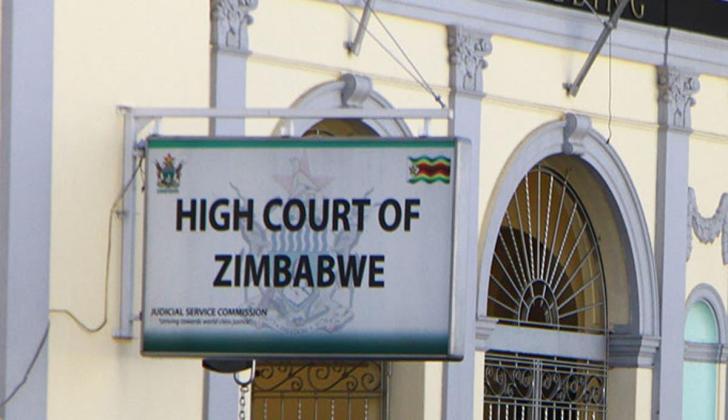News / National
Zimbabwe man jailed 10 years in US$2.7 million ZB Bank heist set free
17 Dec 2024 at 08:21hrs |
0 Views

Tendai Zuze, who was convicted and sentenced to 10 years in prison for his alleged involvement in the 2021 US$2.7 million ZB Bank highway cash heist, has been acquitted by the High Court on appeal after the judges ruled that his conviction was a miscarriage of justice.
Zuze was originally convicted alongside Never Mwamuka and ZB Bank employee Shadreck Njowa, who was described as the mastermind behind the robbery. The heist, which saw a ZB Bank cash-in-transit van intercepted near Nyabira on the Harare-Chinhoyi highway, remains the largest cash heist in Zimbabwe's history.
The High Court appeal, heard by judges Happias Zhou and Benjamin Chikowero, found that the prosecution had failed to provide sufficient evidence to link Zuze to the crime. The judges ruled that the conviction and sentence could not stand.
At the time of his arrest, Zuze was found with US$35,000 in cash. During the trial, it was revealed that Zuze had purchased a Honda Fit vehicle two days after the robbery, and that his mobile phone records placed him near Nyabira, just before the heist took place. However, the judges determined that this evidence, while suggestive, did not prove Zuze's involvement in the crime.
The judges stated that the circumstantial evidence presented by the prosecution, including the phone records and Zuze's purchase of the vehicle, raised suspicion but did not amount to proof of guilt. They emphasized that "suspicion is not evidence," and highlighted that ZB Bank had failed to record the serial numbers of the bank notes, making it impossible to identify the money found on Zuze as being part of the stolen cash.
The judges also noted that Zuze had provided an explanation for the US$35,000, claiming it was his own money from small-scale mining, and that US$10,000 of it belonged to his wife as Stokvel savings. This explanation was not contradicted during the trial.
In their ruling, the judges criticized the trial court for relying on circumstantial evidence while disregarding exculpatory evidence that could have exonerated Zuze. They emphasized that the burden of proof was on the prosecution to prove Zuze's involvement beyond a reasonable doubt, which they failed to do.
"The trial court grossly erred in predicating the appellant's conviction on colourless circumstantial evidence while at the same time ignoring direct evidence, produced by the prosecution itself, which clearly exonerated the appellant," the judges said.
As a result, the High Court quashed Zuze's conviction and acquitted him of all charges. The judges concluded, "The conviction is quashed and the sentence set aside… Accused 2 (Zuze) is found not guilty and is acquitted."
Zuze's release marks a significant development in the case, which has drawn widespread attention due to the scale of the heist and the public interest surrounding the investigation.
Zuze was originally convicted alongside Never Mwamuka and ZB Bank employee Shadreck Njowa, who was described as the mastermind behind the robbery. The heist, which saw a ZB Bank cash-in-transit van intercepted near Nyabira on the Harare-Chinhoyi highway, remains the largest cash heist in Zimbabwe's history.
The High Court appeal, heard by judges Happias Zhou and Benjamin Chikowero, found that the prosecution had failed to provide sufficient evidence to link Zuze to the crime. The judges ruled that the conviction and sentence could not stand.
At the time of his arrest, Zuze was found with US$35,000 in cash. During the trial, it was revealed that Zuze had purchased a Honda Fit vehicle two days after the robbery, and that his mobile phone records placed him near Nyabira, just before the heist took place. However, the judges determined that this evidence, while suggestive, did not prove Zuze's involvement in the crime.
The judges stated that the circumstantial evidence presented by the prosecution, including the phone records and Zuze's purchase of the vehicle, raised suspicion but did not amount to proof of guilt. They emphasized that "suspicion is not evidence," and highlighted that ZB Bank had failed to record the serial numbers of the bank notes, making it impossible to identify the money found on Zuze as being part of the stolen cash.
The judges also noted that Zuze had provided an explanation for the US$35,000, claiming it was his own money from small-scale mining, and that US$10,000 of it belonged to his wife as Stokvel savings. This explanation was not contradicted during the trial.
In their ruling, the judges criticized the trial court for relying on circumstantial evidence while disregarding exculpatory evidence that could have exonerated Zuze. They emphasized that the burden of proof was on the prosecution to prove Zuze's involvement beyond a reasonable doubt, which they failed to do.
"The trial court grossly erred in predicating the appellant's conviction on colourless circumstantial evidence while at the same time ignoring direct evidence, produced by the prosecution itself, which clearly exonerated the appellant," the judges said.
As a result, the High Court quashed Zuze's conviction and acquitted him of all charges. The judges concluded, "The conviction is quashed and the sentence set aside… Accused 2 (Zuze) is found not guilty and is acquitted."
Zuze's release marks a significant development in the case, which has drawn widespread attention due to the scale of the heist and the public interest surrounding the investigation.
Source - zimlive
Join the discussion
Loading comments…
































